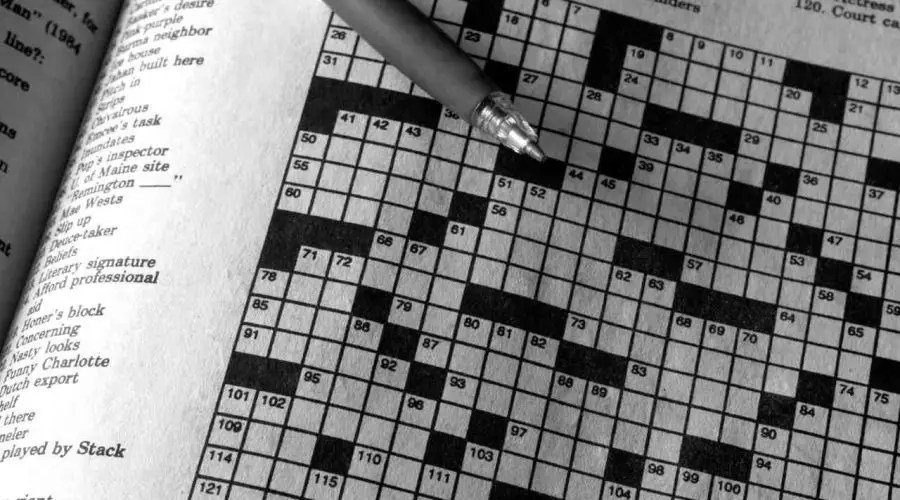The Trojan War epic has captured imaginations for centuries, inspiring countless works of literature, art, and even puzzles like crosswords. In the realm of puzzles, the "Trojan War epic" often appears as a clue in New York Times crosswords, challenging solvers to dig deep into their knowledge of ancient history and mythology. This article will explore the intricacies of the Trojan War, its cultural significance, and how it has influenced contemporary crossword puzzles.
The Trojan War, as narrated in various ancient texts, particularly in Homer's "Iliad," is not merely a historical event but a rich tapestry of heroism, betrayal, and divine intervention. This story of conflict between the Achaeans and Trojans has been a source of fascination for many, leading to adaptations in modern literature and media. Furthermore, the lexicon of this epic has found its way into modern crossword clues, providing a unique challenge for puzzle enthusiasts.
In this article, we will delve into the details of the Trojan War, its key figures, and its enduring legacy. Additionally, we will explore how the Trojan War is represented within the context of NYT crossword puzzles, offering tips and insights into solving these clues. Join us as we embark on this enlightening journey through history and language.
Table of Contents
- Overview of the Trojan War
- Key Figures in the Trojan War
- Myth vs. History: The Trojan War
- Cultural Significance of the Trojan War
- Trojan War in Crossword Puzzles
- Strategies for Solving Crossword Clues
- Resources and References
- Conclusion
Overview of the Trojan War
The Trojan War is traditionally said to have taken place in the late Bronze Age, around the 12th or 13th century BCE. It is famous for its portrayal in ancient Greek literature, particularly in the "Iliad" and the "Odyssey." The war began after Paris, a Trojan prince, abducted Helen, the wife of Menelaus, King of Sparta. This act of treachery led to a ten-year siege of Troy by a coalition of Greek states.
Key events of the war include the involvement of gods and goddesses, such as Athena, Hera, and Aphrodite, who played significant roles in supporting different sides. The war ultimately ended with the cunning strategy of the Greeks using the infamous Trojan Horse, which allowed them to infiltrate and conquer the city of Troy.
Key Figures in the Trojan War
The Trojan War features a multitude of characters, each with their own stories and motivations. Here are some of the most notable figures:
- Achilles: The greatest Greek warrior, known for his strength and rage.
- Hector: The prince of Troy and its greatest defender.
- Agamemnon: The leader of the Greek forces.
- Odysseus: Known for his intelligence and cunning, he devised the Trojan Horse plan.
- Helen: The catalyst for the war, whose beauty was said to launch a thousand ships.
Myth vs. History: The Trojan War
While the Trojan War is steeped in legend, historians and archaeologists have debated whether there is a historical basis for the events described in the "Iliad." Excavations in the ancient city of Troy, located in present-day Turkey, have revealed layers of destruction that suggest a conflict may have occurred.
Some scholars argue that the war was a culmination of various smaller conflicts rather than a singular event. The blending of myth and history continues to intrigue researchers, making the Trojan War a subject of ongoing study.
Cultural Significance of the Trojan War
The Trojan War has had a profound impact on Western literature and art. Its themes of heroism, fate, and the human condition resonate through time. The story has inspired numerous adaptations, from ancient Greek tragedies to modern films and novels.
Moreover, the language and imagery associated with the Trojan War have permeated various aspects of culture. Phrases like "Trojan Horse" have entered the vernacular, often symbolizing deceit or a hidden threat.
Trojan War in Crossword Puzzles
The Trojan War is a popular subject in crossword puzzles, especially in the New York Times crossword. Clues related to the Trojan War often require solvers to recall specific names, events, or terms associated with the epic. For example, clues may refer to Achilles, the Trojan Horse, or the significance of Helen.
Common Clues and Answers
- Achilles' vulnerability: "His heel"
- Trojan prince: "Paris"
- Strategy that led to Troy's fall: "Horse"
Strategies for Solving Crossword Clues
To effectively tackle crossword clues related to the Trojan War, consider the following strategies:
- Familiarize yourself with key terms: Knowing the main characters and events will help you recognize clues.
- Use context: Clues often provide hints about the length of the answer or related terms.
- Practice regularly: Engaging with crosswords frequently will enhance your problem-solving skills.
Resources and References
For those interested in further exploring the Trojan War and its cultural impact, here are some recommended resources:
- The "Iliad" by Homer - the primary source of the Trojan War narrative.
- Archaeological studies of Troy - for insights into the historical context.
- Modern adaptations - films like "Troy" and novels such as "The Song of Achilles."
Conclusion
The Trojan War remains a timeless epic that continues to fascinate and inspire. Its influence can be seen in literature, art, and even in crossword puzzles, where it challenges enthusiasts to connect with ancient narratives. By understanding the key figures and events of the Trojan War, solvers can enhance their crossword-solving experience.
We invite you to share your thoughts on the Trojan War and its impact on modern culture. If you enjoyed this article, please consider leaving a comment or sharing it with friends!
Thank you for reading, and we look forward to seeing you again for more engaging content!


